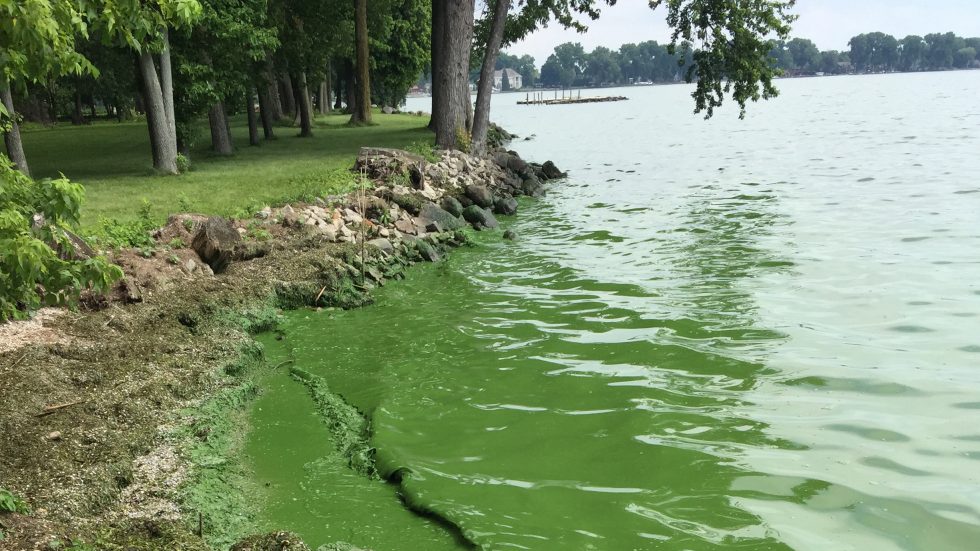A sustainability research team at the University of Wisconsin Oshkosh begins work this week on a new $1.6 million National Science Foundation study of the social and environmental conditions that contribute to toxic algal blooms in freshwater systems.
The project, a collaboration with researchers at the Norwegian University of Science and Technology (NTNU), has broad implications as the blooms result in billions of dollars in economic losses worldwide to industry, recreation and public health. The work also aims to strengthen interdisciplinary sustainability research.
“This is one more demonstration of UW Oshkosh’s capability to boldly pursue scholarship and grants that help our communities and region confront problems threatening natural resources, constraining economic growth and diminishing the quality of life,” UWO Chancellor Andy Leavitt said. “We are equally proud of the opportunity for faculty and students to collaborate in this research. It intensifies learning and experiences that help Titans thrive long into the future.”
Stephanie Spehar, director of UWO’s Sustainable Institute for Regional Transformations (SIRT), leads the interdisciplinary research team of seven faculty and instructional staff members.
Former UWO geography faculty member Elizabeth Barron, who is now with NTNU, is co-principal investigator on the project. Korin Doering, Winnebago waterways program director with the Fox-Wolf Watershed Alliance, serves as a community partner.
“We’re taking a very thoughtful, broad view of this serious sustainability issue in our community,” Spehar said. “We are considering the role of historical, socio-cultural, policy and ecological characteristics of our waterways through partnerships between researchers and communities to identify key social and environmental drivers of toxic algal blooms.”
The blooms, primarily caused by excess nutrients from agricultural and urban runoff, threaten public health, the local economy and quality of life.
More than 45 UWO students over the next four years are expected to work alongside the researchers, gaining valuable field study experience.
Students already had the opportunity to learn a range of useful research skills in summer 2021 through a smaller version of the study carried out through an Ignite grant from the nonprofit WiSys and the UW System.
“The expanded NSF project is especially notable because it advances the theory and practice of sustainability science research by developing the concept of emplaced sustainability, which proposes that sustainability solutions must be based in the histories, cultures and ecologies of specific places,” Spehar explained.
She added that receiving the NSF grant essentially represents “proof of concept” that SIRT’s interdisciplinary approach is a viable way to work on solving sustainability issues.
“We have been working under the assumption that bringing scholars from different disciplines together to talk about their research is interdisciplinarity,” Barron said. “The concept of emplacement sustainability and the associated emplacement framework will push scholars further to develop shared language of sustainability for a particular place based on a range of data and experience, which can then be more clearly communicated to decision makers.”
Spehar said the researchers plan to engage the public and work with stakeholders to try to address the algal bloom issue in the region. “We’ll do this through outcomes like workshops and public meetings, development of a citizen science program, a multimedia popup exhibit, K-12 educational materials and more,” she said.
Learn more:
- $1 million NSF grant to address gender equity concerns in STEM faculty at UWO
- Sustainable Institute for Regional Transformations
Written by Natalie Johnson
Link to original story: https://uwosh.edu/today/107735/uwo-awarded-1-6-million-nsf-grant-for-interdisciplinary-research-on-toxic-algae/

